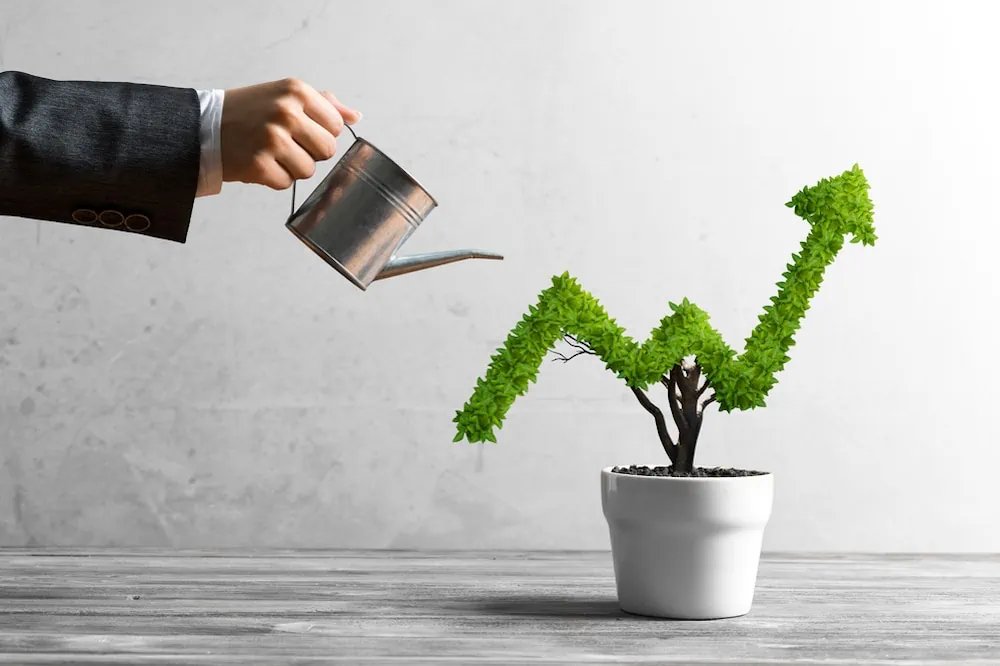A common personal finance question many often ask is, “How many bank accounts should you have to manage your money?” This is a question that often brings up a lot of debate. Some people are adamant that you shouldn’t have more than one while others believe in having many for different purposes.
There’s no right answer to how many bank accounts you need, but there is an optimal number for how many to open and how each account should be used.
Let’s talk about the two types of accounts—checking and savings—and how they can play a role in your financial life!
Table of Contents
How Many Bank Accounts Are Right For Me?

As with most things in the world of finance, the number of bank accounts you should have will vary based on your unique circumstance, needs and preferences. Some prefer to keep things simple by holding everything in one account while others open separate accounts for several different needs so that they can keep them cleanly allocated without intermingling the funds. The ultimate choice for how many bank accounts you should have comes down to the system of accounts that works for you.
Let’s dive into each type of bank account separately to see what they are, how they compare and why you might need one, two or more of each and/or both!
What is a Checking Account?
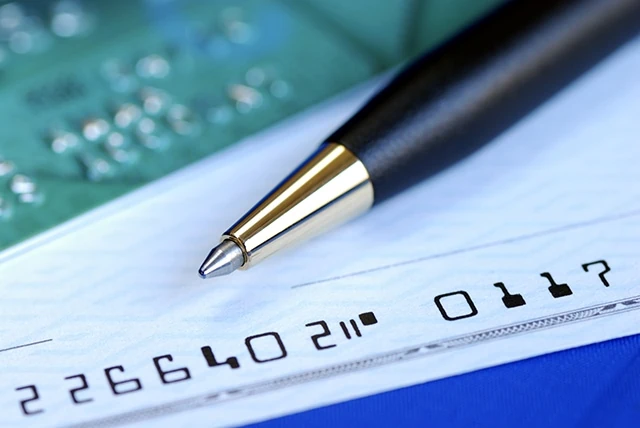
A checking account is a type of account held with a bank or other financial institution which accepts demand deposits, or accounts which allow for withdrawals and deposits on demand.
These accounts also carry the name “demand accounts” because you can make deposits and withdrawals on demand.
You use these accounts to access what’s in your bank account on a day-to-day basis by writing checks, withdrawing money from ATM machines, initiating electronic payments through a bill pay system like ACH, or Automated Clearing House, or having money spent on a linked debit card.
These accounts typically represent what we think of when we hear the term “bank account” because it provides us with our daily financial needs. These accounts differ from savings accounts, which provide you a safe place to store your savings.
A demand account is not an ideal place for saving money, but rather where people go to make their purchases and what they use to pay their bills. Think of what you typically do with your money on a daily, weekly or monthly basis and this is what the checking account will be used for.
Demand accounts rarely offer interest like a savings account, but what they do offer is the convenience of using them as a place to deposit your money and having instant access throughout the day.
What is a Savings Account?

A savings account is a type of bank account that pays interest on what is deposited, and allows for withdrawals only under certain circumstances.
Savings accounts are what most people think about when they hear the word “bank account” because it’s typically where you will put your money to save it or invest in the long-term without having access throughout the day.
Best Savings Account Alternatives [9 Other Ways to Save]
People want to open a savings account when they want to access what’s in their account less often or only a maximum number of times during a period.
The Federal Reserve’s Regulation D states that any savings account which has more than six withdrawals in a month should be reclassified as a “transaction account” or demand deposit account or NOW (negotiable order of withdrawal) account.
These accounts allow an unlimited number of third-party payments and other transactions.
The Federal Reserve specifically excludes savings accounts from the definition of a transaction account because they come with two features:
— Reservation of right. This allows a bank to reserve the right to demand seven days’ advance written notice of an intended withdrawal before processing. Demand deposits don’t have this requirement.
— Restriction on the number of “convenient” transfers or withdrawals in a monthly statement cycle. This counts for the six “convenient” transfers or withdrawals during the monthly billing statement cycle.
Savings accounts are best used when you don’t need your money and aren’t making regular purchases, but rather what you save as part of your monthly budget to go towards large expenses like a car down payment.
Some savings accounts have minimum balance requirements in order to avoid maintenance fees, recurring account fees or other charges on the account.
Best Cash Alternatives [Get Yield on Short-Term Investments]
Banks and credit unions sometimes assess these fees as well for other actions you take (or fail to take). Therefore, you should make sure you consult the fine print on your account agreement to understand what you can and cannot do with your savings account.
When Should I Open A Savings Account?

You should open a savings account when you want to save money for the long-term without worrying about accessing your savings often.
Savings accounts are great when you don’t need that immediate access and can afford to have more of a wait time in order to grow savings without having any penalties or fees attached.
Savings accounts have no maturity dates, should pay at least some level of interest—though interest rates might be low—and may include money market account options.
11 Best CD Alternatives to Capture Interest With Low Risk
Fortunately, not many banks enforce a high minimum balance on savings accounts, though this isn’t always the case. Some require you to hit certain deposit tiers to earn their high interest offers advertised.
11 Best Compound Interest Investments [Where to Invest]
Opening a savings account offers you the chance to segregate your spending funds from your saving funds. You can do this further by opening investment accounts to hold assets you intend to own for longer periods of time.
An investment account can hold stocks, bonds, mutual funds and other investable assets, while savings accounts hold cash—often with interest.
Having money held in a separate account from your checking account can help with planning your budget and controlling the urge to spend. Save that for your slush fund account with a debit card attached.
How Do Prepaid Debit Cards Work?
Which Bank Accounts Should I Have?

Some prefer the simplicity of one checking (demand) account for tracking all their expenses in one place while others want them separated into two or more accounts based on their various purposes. No one answer is right for everyone.
For example, some might want their paycheck split into two checking accounts: one for paying bills that keep the lights on, roof over your head, car in the driveway and food on the table.
For this account, you might want to avoid attaching a debit card as that might tempt you into spending this money on something other than necessities. You need this money to go toward important expenses, not other things. Consider leaving the debit card out of the equation for this account if you prefer segmenting your expenses like this.
People might opt for a second checking account to pay for other expenses not necessarily deemed necessities and more fall under wants or life’s luxuries.
Such examples include meals and entertainment (outside of the house), vacations, financial gifts for babies or kids (or grandkids!) and other splurge-able activities. Some might call this a “mad money” demand account—a term borrowed from investing which is an account that holds funds for speculating outside of a primary retirement account or main investing account.
In other words, money to invest (or spend) on what you want but won’t result in losing financial security. Because you will spend money from this account regularly, you should attach a debit card to it.
A smart move from a personal finance perspective is to choose a debit card over a credit card for spending this money. This will save you money on interest rates and put you closer to your savings goals (or spending it more on an experience you’d rather enjoy than paying a credit card company’s high interest rates).
Should I Have Multiple Checking Accounts?

As discussed above, this would be a wise decision. It allows you to segregate your funds based on expense type, organize your money and avoid spending money you don’t have on things you might not need—just want. More specifically, one should be for ‘needs’ only, and the other should be used less conservatively for your wants or even “mad money.”
The former should not have a debit card attached to it so that you don’t accidentally spend more than what is necessary on day-to-day living expenses.
A good idea is to set a monthly amount for your needs and then use the “wants” account for anything that falls outside of these necessities.
Should You Have Multiple Savings Accounts?

Like the question above, most likely. The opportunity to save money is too good to pass up.
The best way to use one of these accounts is for when you have excess funds from your wants account and want to hold onto it or invest in the long-term. This will allow you, if done correctly, a savings account that will grow over time with compound interest (a.k.a., interest on interest).
Another way to use it is for when you need an emergency fund, which should be separate from your wants and needs bank accounts as well as your long-term savings account. This savings account should be used as a last resort in case of financial emergencies or job loss.
If this ever happens, you’ll want some money that doesn’t come with any strings attached and doesn’t interfere with your other money needs. Consider adding funds into all of these deposit accounts when you receive your paycheck.
Couples can contribute to these simultaneously, or based on career stability. For example, if one person in the relationship holds a steady job as a school teacher while the other works as a freelancer, the latter may wish to contribute more to the emergency fund due to less job certainty.
Having multiple accounts can assist with organizing your funds in alignment with your budgetary needs. Plus, it gives you multiple savings goals to target over time. This can include funds left in the account, or also placed in a money market account, in a CD (time deposit), or other short-term, risk-free financial product offered by your bank, credit union or banking institution.
Choose Your Banks Carefully

When you choose a bank, you may look for specific services they offer that your other banks do not—including one you may already bank with.
For example, some banks may offer a lower interest rate on auto loans if you hold a demand deposit or savings account with them holding some minimum amount of deposit or if you agree to set up automatic payments.
Instances like this make opening up a new account (for a discount on a loan) a good idea. Likewise, you may find that this new bank has a better overall suite of products and services as well as customer experience, leading you to transfer your other accounts to this bank.
Though, don’t burn bridges with your old bank(s). You might need to return to them in the future when comparison shopping for a home or auto loan. Though, closing an old account shouldn’t pose a significant challenge.
Oftentimes in today’s banking industry, going with an online only bank can make a lot of sense. They offer competitive rates on savings products and loans, have robust online banking portals and mobile apps, and offer reimbursed ATM withdrawal fees.
Can You Have Multiple Checking Accounts at One Bank?

Yes, though be aware that the FDIC insurance coverage offered by your bank covers all accounts held with the bank in aggregate, not per account you have with the bank.
This means if you have multiple bank accounts at the same institution, you only have $250,000 of FDIC insurance coverage between them all, not each. If there are two people on the account, that doubles the FDIC coverage to $500,000.
Also, be aware that you might face different service fees, rules, charges and options with each account held at the same bank. You might want to comparison shop other banking options when considering where to hold a number of bank accounts.
How Many Bank Accounts Should a Single Person Have?

As discussed above, having a differentiated set of accounts can help with budgeting, saving and preparing for your financial future. Having a dedicated account for specific purposes can help with how you manage money as well as lead you down a sounder financial path.
As your account balances grow, consider having accounts held at different banks, credit unions or other financial institutions to ensure you have maximum FDIC coverage.
Do Millionaires Have Multiple Bank Accounts?

How much money you have shouldn’t determine how many bank accounts you have. Instead, you should have a system in place that makes your budget work and puts you on target for achieving your financial goals.
That said, millionaires likely do have multiple bank accounts out of necessity, no matter how they organize their finances and segregate funds. Because the FDIC only offers insurance on up to $250,000 in funds held with the bank per person—no matter how many bank accounts are open.
Therefore, millionaires want a better system for managing their bank accounts as well as any investment accounts or other financial resources they own.
Does Having Multiple Checking Accounts Hurt Your Credit?

No. The number of bank accounts you have does not impair your credit score. These don’t represent liabilities you must repay, therefore these balances don’t get reported to credit rating bureaus. Decisions related to credit cards, mortgages, student loans, car loans and bills all have impacts on your credit. Having multiple bank accounts does not.
Also, having multiple credit cards and other types of credit with a consistent payment history will help you to build credit.
Does Opening a Checking Account Impact My Credit?
What Other Bank Account Types Exist?

In addition to traditional checking and savings accounts, banks, credit unions, and other financial institutions offer a number of other financial accounts to store your money. This can include deposit accounts with FDIC insurance, or even retirement and investment accounts with SIPC coverage.
1. Certificates of Deposit (CD)
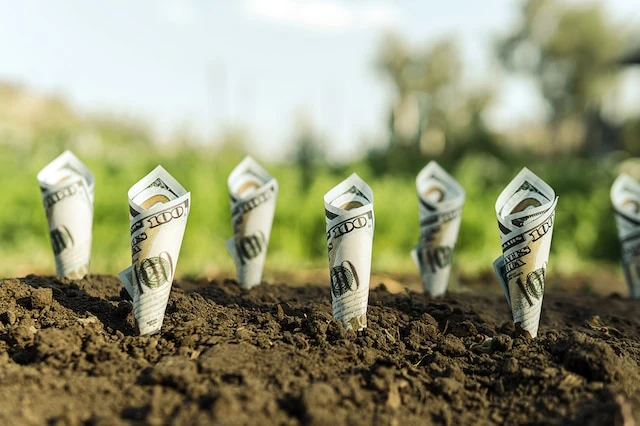
A certificate of deposit (CD) is a time deposit, meaning it’s a financial product you buy for a fixed period of time.
If the CD is held to maturity at the end of that term, they typically offer higher interest rates than other types of savings and investments accounts—but come with more risk as well.
A CD is an account from which funds cannot be withdrawn without penalty from a financial institution.
2. Money Market Accounts

Money market accounts are money market mutual funds or money market deposit accounts (MMDA). Money Market Accounts are a financial instrument to save money with minimum risk and higher interest rates than a high-yield savings account or checking account.
If you’re looking for a safe investment that offers higher returns than traditional savings account rates but doesn’t require the high risk of stocks or bonds, then MMAs might work for you.
3. Individual Retirement Accounts (IRAs)
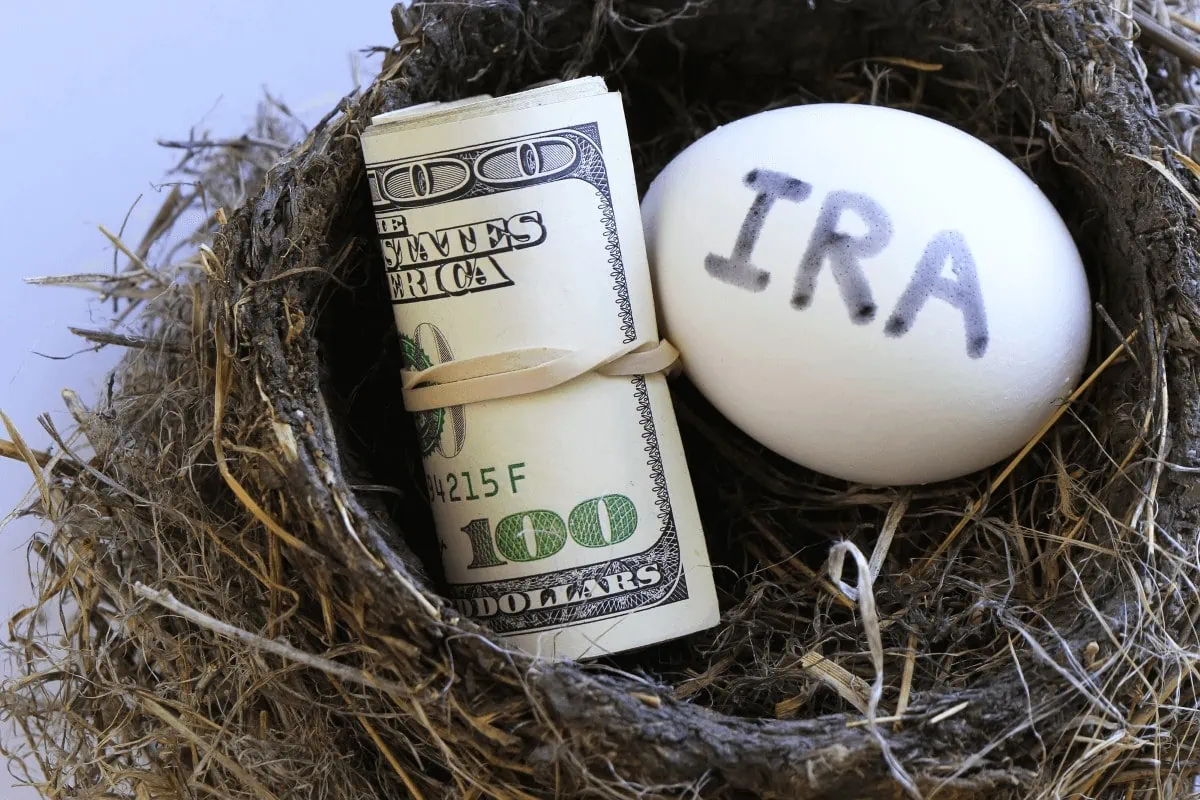
Individual retirement accounts, or IRAs, are individual investment accounts where you can save funds for retirement. You can save up to $6,500 per year (or $7,500 if age 50+) as of 2023 in these accounts. They come in two flavors: traditional (pre-tax contributions) and Roth IRAs (after-tax contributions).
To contribute money, you (or your spouse) need earned income. Age requirements don’t apply in this case. That means you can open a custodial Roth IRA for kids if they have earnings.
4. Brokerage Account

A brokerage account is an investment account you can use to buy stocks, bonds, mutual funds, exchange-traded funds (ETFs) and more. A brokerage account is a brokerage firm’s portfolio of investment holdings for one client or customer.
You can open a brokerage account with a number of different providers, from stock trading apps for beginners, to stock trading apps for anyone. Some even offer free stocks for signing up!
Final Verdict On Number of Bank Accounts You Need?
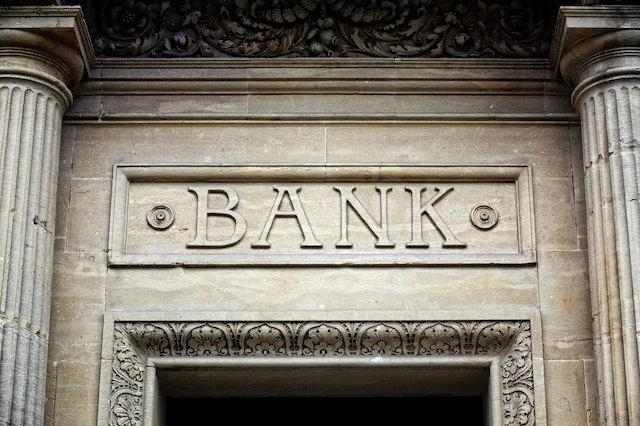
At the absolute minimum I suggest having at least two accounts: a checking account for regular expenses and a savings account to save.
Budgeting properly has you place a portion of your paychecks into the checking account for necessities like rent or a mortgage, utilities, food, transportation and things like insurance, auto repairs, maintenance expenses and more.
A portion should also go into your savings account, including a dedicated amount deposited into a fully funded emergency fund. If you haven’t built this to cover at least 3-6 months worth of expenses, strongly consider prioritizing this over other financial needs first.
This strategy intends to help you gain maximum financial flexibility while also offering you greater cash flow and liquidity. Further, it will also aid in building your wealth by growing your assets and minimizing your liabilities.
Related: The 13 Best Investment Apps for Beginners

So, you want to start investing, and you’ve saved up a little money to put toward your future. Great! All you really need to do now is find an investment app—preferably one geared toward a beginner like yourself.
But what exactly does that look like? We can give you an idea. Check out our rundown of the best investment apps for beginners, complete with features, investible assets, pros, cons, and more.
Related: How to Get Free Stocks for Signing Up: 15 Apps w/Free Shares

There are few better ways of turbo-charging a new investment account than snagging some free stocks right off the bat.
Sound too good to be true? Believe it or not, it’s completely normal for brokerages and investment apps to give out free stocks. Check out our list of apps that offer free stocks just for signing up. (And importantly: These are apps you’ll want to keep using, even after you’ve locked in your freebees!)
Related: 10 Best Long-Term Stocks to Buy and Hold Forever
As even novice investors probably know, funds—whether they’re mutual funds or exchange-traded funds (ETFs)—are the simplest and easiest ways to invest in the stock market. But the best long-term stocks also offer many investors a way to stay “invested” intellectually—by following companies they believe in. They also provide investors with the potential for outperformance.
So if your’e looking for a starting point for your own portfolio, look no further. Check out our list of the best long-term stocks for buy-and-hold investors.



